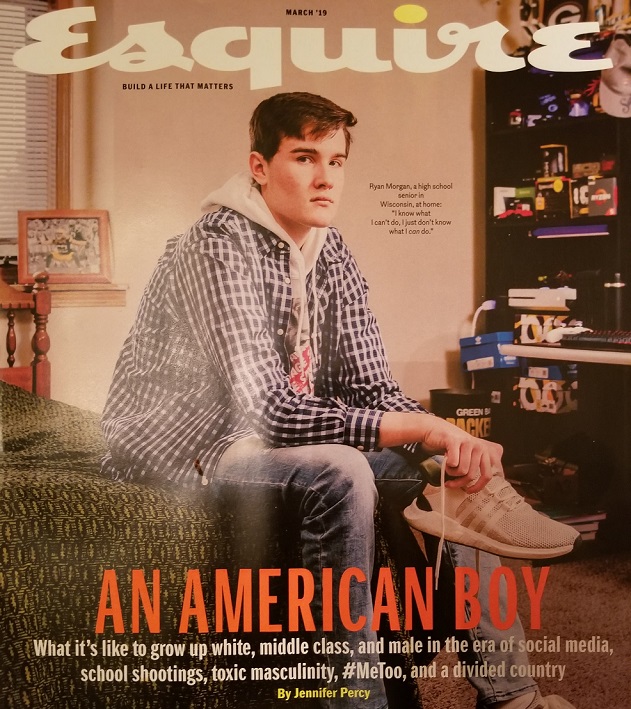
Esquire magazine published an article titled “The Life of an American Boy at 17 Feb. 12,” which features a 17-year-old, white teenage boy from a mostly white and conservative town in Wisconsin. This is the first article of a series following what it’s like to grow up in America today.
I understand Esquire probably sought out to cover all the bases of representation, but nobody wants to read a story about the life of yet another white, middle-class boy.
As controversial as it may be, Esquire felt the need to represent someone who already has so much representation in the U.S. by default. However, the story is just boring and has no meaningful resonance.
Throughout the story, Ryan Morgan, the subject of the profile, discusses his thoughts on school, girls, video games, hunting and his parents’ divorce. He mentions that around the 2016 presidential election, he “couldn’t say anything [supportive about Trump] without pissing anyone off” at his school that was mostly anti-Trump.
Twitter users were quick to let their thoughts be known. One user pointed out that it was insensitive of Esquire to publish this story first in the series, especially during the Black History Month. Many shared that they simply don’t care to read the article, while some others agreed that Esquire should be examining male whiteness.
As a journalist, I understand what Esquire was seeking to accomplish. If they are going to do an entire series on the experience of growing up today in America, they will need a wide scope of people to interview.
However, I can’t believe they actually wrote a long-winded article detailing the mundane events and thoughts of Morgan’s life. Hopefully, there are more fulfilling and inspiring stories to be published in this series.
I’m not mad at Esquire, but they shouldn’t expect this article to have meaning to anybody. People simply can’t empathize with people who they know have inherent privilege.


